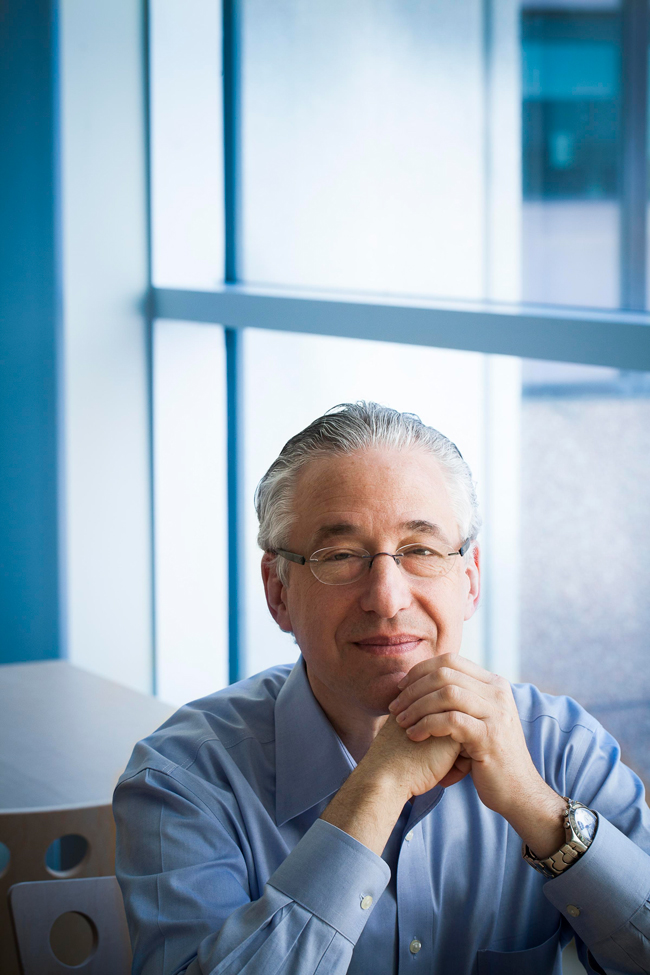
By Tod Hoffman
When facing the stress and anxiety of undergoing chemotherapy, the last thing a patient needs to endure is the added frustration of a lengthy wait before receiving treatment. As part of its continuous efforts to improve care and the patient experience, the Segal Cancer Centre at the Jewish General Hospital has adopted an electronic scheduler to manage appointments. The results have been profound: reduced waiting time from doctor’s visit to first chemotherapy session of more than 50 per cent.
The scheduling tool is a central feature of the Endovault software that manages health records at the Segal Cancer Centre. It has been undergoing beta-testing for the last few years and was unveiled last week at the meeting of the American Society of Clinical Oncology (ASCO) in Chicago.
“Previous data showed that, despite our best efforts, almost 80 per cent of our patients waited more than thirty minutes to get their chemotherapy. Now, with our new system in place, over 50 per cent of them receive their treatments within thirty minutes of checking in, and that figure continues to improve,” said Dr. Gerald Batist, Director of the Segal Cancer Centre. “The results of enhancing our efficiency – especially important during this period of austerity – reduce wait times, benefiting our patients.”
“The new system allows our nurses to spend more of their time delivering care,” said Erin Cooke, head oncology nurse at the Segal Cancer Centre. “It makes our work flow more predictable and, therefore, less overwhelming by minimizing unexpected influxes of patients.”
“Moreover, they will be able to choose for themselves the available appointment time that would best suit their own agenda,” added Pierrot Mbayo, Information Technology Project Manager at the JGH.
The effort to improve scheduling emerged from patient satisfaction surveys conducted across the McGill University network by the Rossy Cancer Network, of which the Segal is a founding member. The amount of time spent waiting for treatment was regularly cited by patients as one of their most pressing issues. The Rossy Cancer Network was established to pay particular attention to assuring quality care and continuous evidence-based improvements.
“Just as anti-cancer treatments at the Segal are constantly improving and resulting in better medical outcomes for our patients, we believe that how we deliver this care is also important to the patients,” Dr. Batist added.
Endovault software, developed by Endosoft, has been implemented in over 700 medical institutions worldwide. However, its customization for an oncology platform is being pioneered in partnership with the Segal Cancer Centre and the IT department of the Jewish General Hospital. Already, 80 per cent of physicians at the Segal are using the system, and the entire Centre is expected to be paperless and chartless, which will further reduce costs and improve efficiency, within six months.
